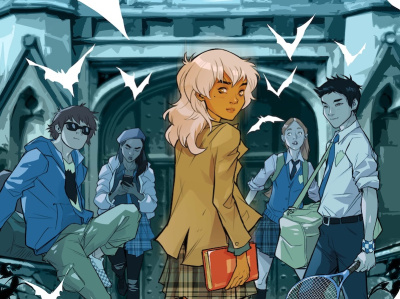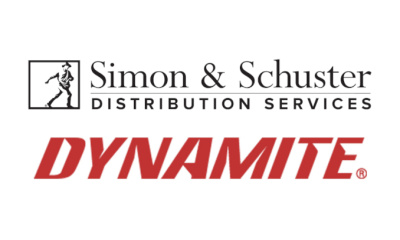James Baird of New World Games and Comics in Oklahoma City, Oklahoma saw Bill Jemas' comments on oveprinting (see 'Marvel's Bill Jemas 'Tells the Truth about Over-Production'') in conjunction with Marvel's plan to tweak its no overprint policy (see 'Marvel Prints on Spec!'), and sent us this comment.
WHAT THE..?!
Bill Jemas' claim that the 'nice' publishers 'reach into [the retailer's] pocket to grab most of the money that is generated by a hot comic' makes me laugh. It makes me mad. It is condescending. It is simply not 'the Truth'. Am I missing something here? Let me spell it out for you Bill; I won't even paraphrase.
I preorder a comic with a wholesale discount.
I sell that comic and make a buck.
If I sell out, I reorder that comic with the same discount (if available).
I sell that comic again at MSRP and make another buck. I have happy customers who come back.
At what point is a 'nice' publisher taking my profit because they sold me comics that are in high demand at the original wholesale price? Consumers can't order from my distributor. If a comic is so popular that I feel the need to raise the price on it, being able to reorder that comic makes me even more money. Making more money keeps me in business. Staying in business allows me to order more Marvel comic books. See the connection?
Does Bill Jemas think that comic retailers are stupid? A publisher's overprint policy doesn't put books in the bargain bins. Over-ordering by retailers puts books in the bargain bins. Comic retailers learned two hard lessons in the mid-90s. LESSON #1: Order what you can sell. Period. LESSON #2: Don't speculate on crappy books just because a publisher tells you to in their advertisements. Period.
Marvel's no-overprint/reprint policy encourages retailers to violate Lesson #2. NEVER AGAIN! That is my slogan. Speculation hurts every publisher, distributor, retailer and consumer in the comic industry. NEVER AGAIN.
Let us set that aside for a moment. Instead, lets examine Jemas' implication about marking books up while still new. We will ignore the idea that increasing the price on a comic that are considered to be 'new' is price gouging. We will ignore the effects of having that kind of store policy. Mostly. Just how often does Billie-boy believe that Marvel produces a comic 'gem' of such quality that customers will pay over cover price for it while it is new? I remember exactly two comics published by the house that Stan built in the last 14 months that shot up in price within 1-2 months: Wolverine: The Origin #1 and Amazing Spider-Man #36.
Neither of these books are scarce. Wolverine: The Origin had incredibly high demand from inside the comic market. Who knew? Amazing Spider-Man was in high demand from OUTSIDE the comic market because of the tragedy on September 11, 2001 and the subsequent media coverage. The content in Amazing Spider-Man #36 was changed after the initial solicitation to become a tribute book. It was tastefully done. However, the announcement that it would be changed and the opportunity for order increases was in the weekly Diamond newsletter. Considering the general chaos that followed the attack in New York, it is very understandable that many retailers overlooked the chance to increase orders to meet demand for the general public. Although Amazing Spider-Man is very popular on its own, this book did not have an increased demand based on story or art.
In short:
Marvel's policy of not overprinting does not help retailers. It helps Marvel. I understand that. I want Marvel to be financially healthy. If Marvel does well, I will do well.
But Bill, don't tell me you are doing me favor. Don't spin the facts.
If I have MORE hot books, I sell MORE hot books. I make MORE bucks. If I sell out of 'Marvels', I can't make MORE bucks.
Retailers are their own worst enemy when it comes to ordering. I am beginning to wonder who #2 is.
'Nuff said.







